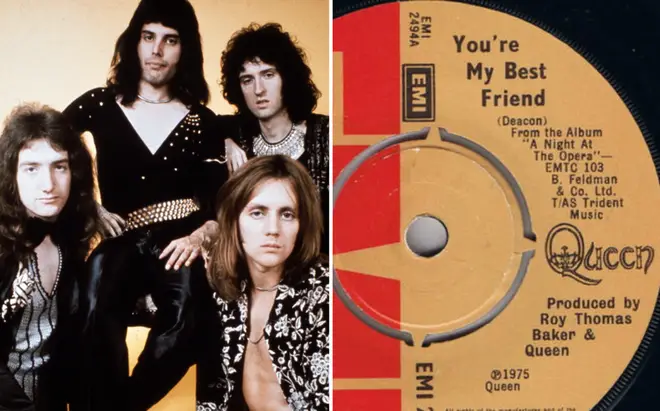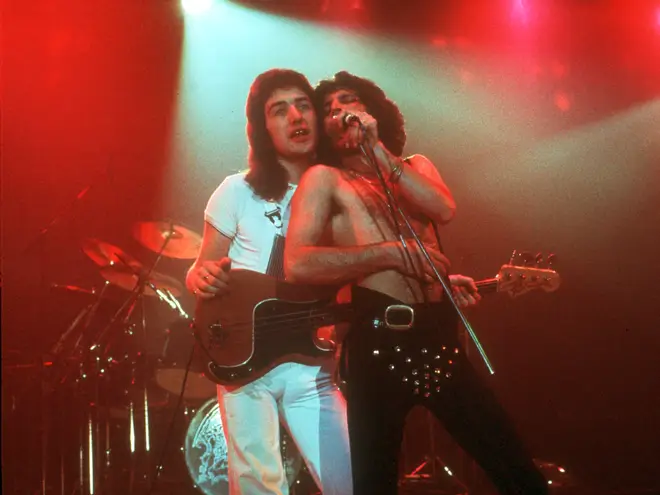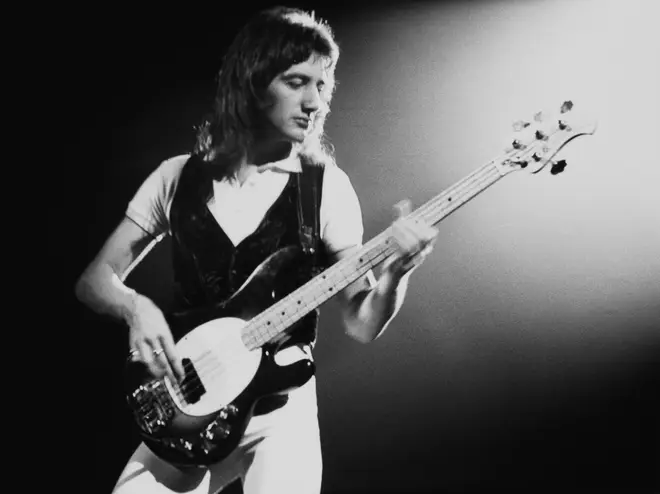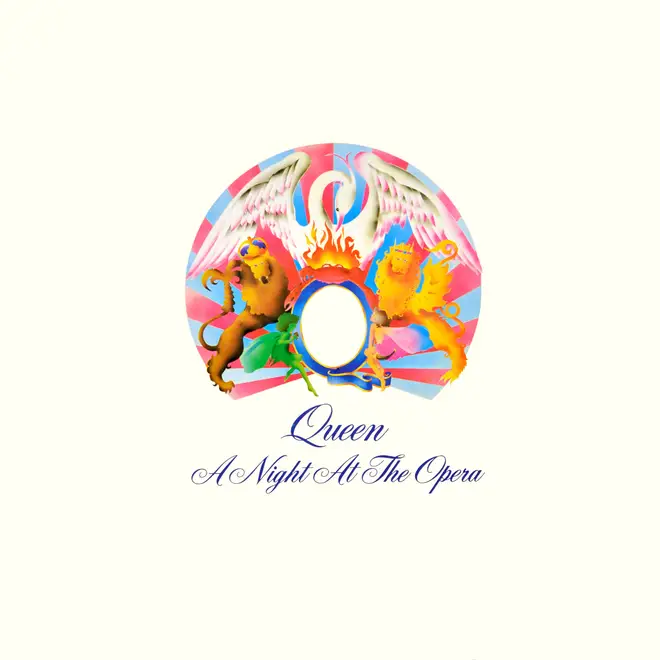On Air Now
The Smooth Sanctuary with Darren Parks 7pm - 10pm
23 November 2023, 13:35

"Ooh, you make me live..."
It's a classic Queen song that we've all no doubt sung lovingly to a partner, or even in an entirely platonic manner to a best friend, given the song's sweet, kind-hearted nature.
When 'You're My Best Friend' was first released, the pop culture-altering, operatic anthem 'Bohemian Rhapsody' was riding high in the charts.
But the magical ballad helped solidify Queen's reputation as one of the defining and downright eclectic rock bands of the era.
All band members contributed to the songwriting of their quintessentially Queen album A Night At The Opera, which was unusual for a classic rock band and ensured they remained indefinable, at the time and even to this day.
Each member had their own unique songwriting style and vision, and when merged together perfectly in unison, the result was this album. And it was 'You're My Best Friend' when we first realised it.
So who wrote 'You're My Best Friend'? How did it perform in the charts? Why did a row between two of the bandmates inspire the song? Here's all you need to know:

Queen - You're My Best Friend (Official Video)
It was in fact Queen bassist John Deacon that wrote the ballad 'You're My Best Friend'. He wrote the song for and about his wife, Veronica Tetzlaff.
The band's mystery man had only contributed one song until that point, 'Misfire' from 1974 album Sheer Heart Attack.
Deacon - as we now famously understand - was more fond of the quiet life, despite being in what was to become one of the world's biggest and greatest-ever rock bands.
During the early days of Queen, he was the shiest and quietest of the group so seldom put his song suggestions forwards, but that changed with 'You're My Best Friend'.
John has only recently married Veronica, and wanted to write an ode to his love for her, as well as write a hit to earn them enough money to buy a family home.
The song's success did exactly that, and after being refused an advance to use for a deposit on a house, John encouraged the band to break free of their contract with then-management.
Freddie Mercury later recalled: "We had best-selling albums but we were still living in crummy basement flats on fifty pounds a week."
"John Deacon kept a very close eye on all our business affairs. He knew everything that should and shouldn't be going on. If God had forsaken us, the rest of the group wouldn't do anything unless John said it was alright."

John Deacon getting into a war of words with anybody, let alone the cocksure Freddie Mercury, is seemingly beyond belief.
But a rare dispute between the two actually inspired Deacon to sit down and pursue his idea for the song.
For his idea, John wanted to use the Wurlitzer EP-200 electric piano which irked Freddie, who couldn't fathom why they'd ignore the beautiful grand piano in the studio, and flat-out refused to play it.
"I refused to play the damn thing," Mercury clarified in 1977. "It's tinny and horrible and I don't like them."
"Why play those things when you've got a lovely superb grand piano? No, I think, basically what he [John] is trying to say is it was the desired effect."
"Well, Freddie didn't like the electric piano, so I took it home and I started to learn on the electric piano and basically that's the song that came out you know when I was learning to play piano," John added.
"It was written on that instrument and it sounds best on that. You know, often on the instrument that you wrote the song on."
It's hard to argue with John on this instance - the barking keyboard intro to the song is now iconic, and instantly recognisable from the get-go.

John Deacon wrote a handful of hits for Queen, some more unexpected than others.
He actually penned 'I Want To Break Free', detailing the anguish and frustration in his life at the time, though Freddie's performance often meant fans thought it was about his own sexuality.
Another major hit Deacon penned was 'Another One Bites The Dust', which makes more sense because of its pounding bass line.
In many ways, he was the band's secret weapon, with guitarist Brian May later recalling: "John didn’t write that many songs but when he did – as with ‘Another One Bites the Dust’ and ‘I Want To Break Free’ – they were big, big hits."
"John was a dark horse, generally the quiet guy in Queen. We would ask him sometimes, 'Have you got anything, John?' and he was very self-effacing about what he had written."

'You're My Best Friend' was released on 18th June 1976, and was the second single to be released from Queen's 1975 album A Night At The Opera, following 'Bohemian Rhapsody'.
The album was reportedly the most expensive album ever recorded at the time of its release, due to the amount of studio time the band booked and the lavish. But it paid off.
'You're My Best Friend' was a top ten hit in the UK charts after its release, and a top 20 hit in the US where it has now been awarded platinum status.
The song was the second single to receive a promo video after 'Bohemian Rhapsody' - who can forget the enormous chandelier hanging from the ceiling and the hundreds of candles surrounding the band?
Directed by Bruce Gowers, the accompanying music video was filmed at London's Elstree Studios, though Freddie got his way with this one - he plays a grand piano in the video in lieu of the Wurlitzer EP-200.

Queen Live Killers 08 You're My Best Friend
Despite 'You're My Best Friend' being one of Queen's most beloved songs, the band stopped playing it after 1980's The Game tour.
Even before then, they'd truncate the song as part of a medley, and it's not entirely clear why.
Maybe because Freddie, who had vocally denounced the Wurlitzer, was the primary keys player live and wouldn't budge from the grand piano, so they might've dropped it altogether.
After Freddie's death however, Queen did play the song again, though omitted the song from being performed at the Freddie Mercury Tribute Concert in 1992, perhaps because he was never really a fan.